-
What Glaucoma Does to the Eyes
If your ophthalmologist near Chicago has diagnosed you with glaucoma , you may be wondering about the nature of this condition and how it will affect your vision and eye care. Different patients can experience glaucoma in different ways. In most cases, this disease affects peripheral vision first. As glaucoma progresses, it can cause you to experience tunnel vision as your peripheral vision continues to deteriorate. While some people maintain their central vision, this can also be damaged by glaucoma.
Eye doctors aren’t certain about why glaucoma causes damage to the optic nerve but for many patients, an increase in pressure in the eye seems to be involved. Your eyes produce a watery fluid called aqueous humor that, in healthy eyes, drains out and into the bloodstream. Because of a malfunctioning drainage system, the fluid fails to drain properly in some individuals, resulting in an increase of pressure in the eye. Some ophthalmologists believe that this condition may be the cause of the optic nerve damage and resulting vision loss that occurs in glaucoma patients.
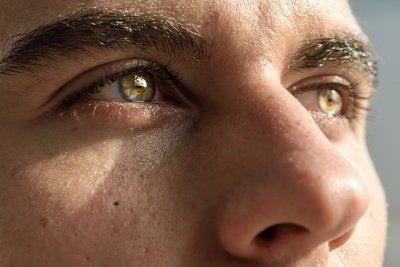
-
What to Know About Age-Related Macular Degeneration
Age-related macular degeneration (AMD) is one of the most common causes of vision loss in Americans over 50 years of age and is frequently treated by eye doctors in Chicago. If you’ve been diagnosed with this condition or think that you may be at risk, read on to learn more about AMD.
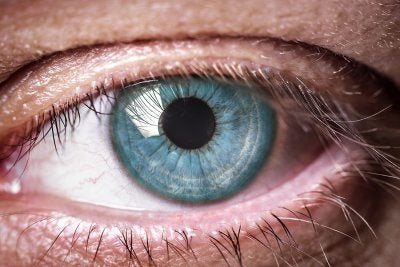
Types of AMD
Age-related macular degeneration affects the macula, which is at the back of the eye in the center of the retina. AMD can cause slow or rapid vision loss but rarely leads to total blindness. Dry AMD usually progresses slowly and is the most common form of this condition. This type of AMD stops the flow of nutrients to the cells in the macula which process light, resulting in cell death. Wet AMD tends to progress quickly and results in more serious vision loss. With this type of AMD, abnormal blood cells grow beneath the retina and break open, resulting in vision impairment.
Symptoms of AMD
It’s possible for the signs of AMD to manifest only once the disease has progressed. AMD sufferers can experience symptoms that include difficulty seeing in low light, seeing straight lines as blurry or wavy, trouble seeing in the center of vision, and changes in the appearance of colors. Visit an eye care specialist if you experience any of these symptoms.
Treatment for AMD
For patients diagnosed with dry AMD, vitamin supplementation is the current form of treatment. Research has shown that in certain combinations, vitamins can slow AMD’s progression in some patients. Treatment for wet AMD focuses on preventing the growth and decreasing the leakage from the abnormal blood vessels. Laser procedures are sometimes used, but anti-vascular endothelial growth factor drugs are the standard treatment. These medications are injected into the eye by an ophthalmologist. The eye is numbed beforehand, and the injections must be administered several times over the period of treatment. Your eye doctor may also recommend that you speak with your primary care physician about developing an exercise plan and making dietary changes that support a healthy lifestyle.
-
Taking Care of Your Child’s Vision
Just like going to the dentist and the pediatrician, eye examinations and visits to an eye doctor in Chicago should be part of your child’s routine medical care. Keep reading to learn more about taking care of your child’s vision.
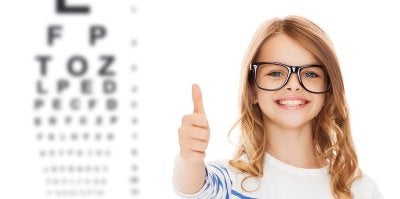
Types of Eye Care Specialists
There are a variety of eye care professionals that your child may need to see. Optometrists offer primary vision care and can perform eye examinations to determine if your child needs glasses or is suffering from an eye disease. Opticians specialize in fitting and adjusting eyeglasses. Ophthalmologists are medical doctors who provide comprehensive eye care, including surgery and practicing medicine. Finally, pediatric ophthalmologists are eye doctors who have undergone additional training to diagnose and treat problems that can affect children’s eyes.
Sources of Childhood Eye Care
Throughout her childhood, your child should periodically have her eyes examined. Newborns typically have their eyes checked by a doctor while in the hospital nursery as part of a general health examination. Your child’s pediatrician or family doctor should perform eye health screenings as she grows up and if irregularities are detected, direct you to see an eye doctor. For children that already wear corrective lenses, visits to an eye doctor should be scheduled once per year so their eyes can be monitored for changes and their eyewear can be updated accordingly.
Signs of Childhood Eye Problems
Besides having a doctor look at your child’s eyes, you can also take care of her vision by knowing how to spot eye problems. If you notice that your child’s eyes are extremely sensitive to light or are chronically watery or red, schedule an eye doctor appointment. Other indicators of an eye problem include poor visual tracking, poor focusing, a whitened pupil, constant eye rubbing, and abnormal eye movement or alignment after six months of age. Once your child is of school age, there are behaviors to watch for that can indicate that she is struggling to see properly. These can include sitting close to the TV, squinting, having difficulty reading, struggling to see distant objects, and having trouble reading the blackboard at school.
-
Sunglasses: More than Just Fashion
July is UV Safety Month, which serves to remind individuals of the importance of protecting themselves from the sun’s harmful rays. Ultraviolet (UV) radiation is a type of energy transmitted by the sun. Tanning lamps and tanning beds are also major sources of UV rays. There are three main types of UV rays, two of which can have serious health consequences for people. It’s common knowledge that excessive exposure to sunlight increases the risk of skin cancer, but it’s just as important to protect the eyes from these harmful rays. The next time you visit an optical center in Chicago for an eye exam or LASIK consultation, consider talking to your eye doctor about how you can protect your eyes from UV rays.
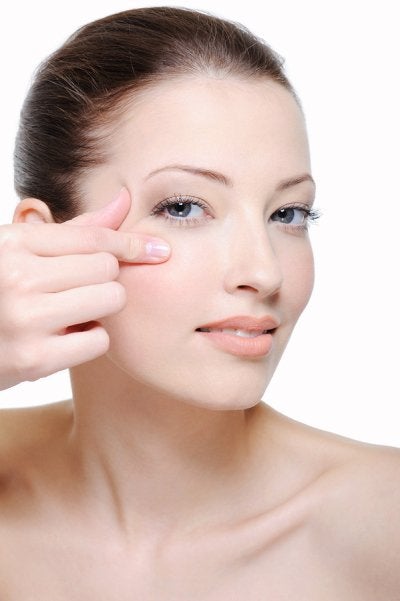
Identifying the Dangers of UV Rays
During UV Safety Month, take a few minutes to learn about the ways unprotected sunlight exposure can harm the eyes. UV rays can damage the eyes in several different ways. They increase the risk of cataract development, which are cloudy areas on the lenses. They can cause photokeratitis, which results in temporary vision loss. UV rays can even increase the risk of macular degeneration, pinguecula (yellow bumps on the eye), and pterygia (disfiguring bumps that cause blurry vision).
Protecting Yourself from UV Rays
It’s commonly thought that protection from UV rays isn’t as important on cloudy days or during the winter. In fact, a significant percentage of UV rays can still penetrate your eyes and skin on cloudy days. Likewise, cold temperatures do not mitigate the effects of UV rays on your eye health. For optimum eye care , your eye doctor is likely to recommend that you wear protective sunglasses every time you go outdoors. A wide-brimmed hat is also a good idea. Choose wraparound-style sunglasses that protect your eyes from all angles. Select a pair that is labeled to offer 100 percent UV protection or ask your eye doctor for recommendations.
Protecting Kids from UV Rays
Children are even more susceptible to eye damage from UV exposure compared to adults. Protect your child’s eyes by encouraging him or her to wear sunglasses that block UV rays. Let your child choose the style and color of sunglasses, provided they are labeled for 100 percent UV protection. Additionally, let your child choose a wide-brimmed hat to wear outdoors for even better protection.
-
What to Do to Prevent Eye Injuries
Eye diseases like macular degeneration aren’t the only problems that can rob a person of his or her healthy vision. Injuries to the eye can occur in mere moments, but they can have life-changing consequences. Residents of the Chicago area can get some eye care tips from their ophthalmologist. Even when individuals take precautions to protect their vision, accidents can occur from time to time. If you’ve suffered an eye injury, seek immediate medical attention.
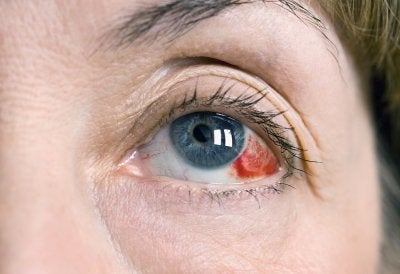
At Work
Work-related eye injuries are entirely too common. When a job exposes employees to hazardous chemicals, airborne debris, and other hazards, employers are supposed to provide proper protective gear, including safety goggles. However, it’s incumbent upon the employee to ensure that he or she follows safety guidelines and wears these goggles as needed. Adequate safety goggles are those that feature side shields. Other protective gear can include face shields , full-face respirators, welding helmets, work screens, and machine guarding. Individuals who wear eye glasses, rather than contact lenses, can consult an eye care professional about getting prescription safety goggles.
At Home
The workplace and the home are the two major places in which eye injuries occur. Eye doctors recommend taking precautions inside and outside the home to protect one’s eyes. Inside the home, some common hazards include cleaning chemicals, grease splatters, certain children’s toys such as projectiles, and tripping hazards. Champagne bottles are another potential hazard. When opening a champagne bottle, always point it at a 45-degree angle away from yourself and everyone else. After you’ve removed the wire hood, place a towel over the entire top of the bottle before twisting the cork out. Outside the home, yard work is often the greatest hazard for eye health. Before mowing the yard, walk over the entire area, removing branches and other potential projectiles. Do not allow children outdoors while mowing or doing other yardwork with power tools. Remember to wear safety goggles.
At the Gym
Thousands of people suffer from sports-related eye injuries each year. Some of those injuries occurred because the patients relied on their regular eye glasses to provide adequate protection. Safety goggles ought to be worn before engaging in certain sports, such as racquetball and basketball.
-
What You Should Know About Glaucoma
Glaucoma is a chronic eye disease that can lead to blindness . It involves damage inflicted on the optic nerve. Although your eye doctor cannot cure glaucoma, he or she can help you learn how to manage it properly. Early detection is critical, so schedule regular eye exams at an optical center in Chicago. Your eye doctor can check for the early warning signs of glaucoma by performing a dilated eye exam, which checks for damage to the optic nerve. The ophthalmologist can also check the pressure in your eye and assess your visual field.
When you visit the optical center, be sure to tell your eye doctor about any changes in your vision. Glaucoma typically causes patients to lose “patches” of vision such as peripheral vision. If you are diagnosed with glaucoma, it’s likely that your ophthalmologist will prescribe medicated eye drops to lower the pressure within your eye and prevent further damage. Some people with glaucoma may need laser surgery to manage intraocular pressure.
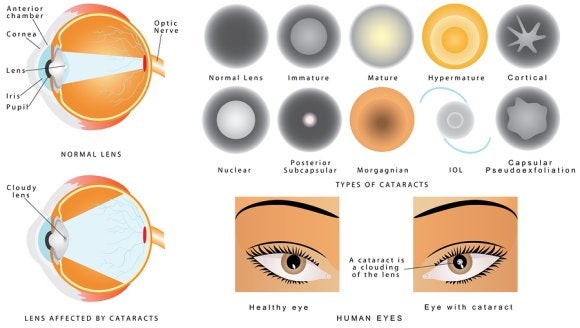
-
Protect Your Eyes in the Sun
You probably already know that wearing sunscreen while outdoors can help protect you from skin cancer. But did you know that the ultraviolet (UV) rays from the sun can also damage your eyes? In fact, your eye doctor may be more likely to diagnose you with age-related macular degeneration if you have excessive, unprotected sun exposure. You might also be more likely to undergo cataract surgery at a clinic in Chicago if you neglect to protect your eyes.
Watch this video and consult your eye doctor for some helpful eye care hints. This video recommends wearing sunglasses every time you go outdoors. Look for shades labeled “UV 400” or “100 percent UV protection.” Pair your sunglasses with a hat and recognize that sun damage can occur even on cloudy and winter days.
-
What Is Dry Eye?
Dry eye is extremely uncomfortable, and when left untreated, can lead to chronic pain, eye ulcers, and corneal scarring. See your eye doctor for dry eye treatment in Chicago to prevent long-term complications and chronic discomfort.
Dry eye occurs when the eye either doesn’t produce an adequate amount of tears or produces tears that evaporate too quickly. This causes inflammation that can make it difficult to look at a computer screen, watch television, or read. With dry eye, patients experience stinging, burning, the feeling of sand in the eyes, redness, inability to cry, and decreased tolerance for dry environments. There are many different causes, ranging from medications to certain eye diseases.
There are a number of different ways your doctor can treat dry eye. Sometimes, switching medications can be the solution. Other patients benefit from eye drops and nutritional supplements. In rare cases, eye surgery to prevent premature tear evaporation could be helpful. Your eye doctor will devise a dry eye treatment plan based on the root cause of your symptoms.
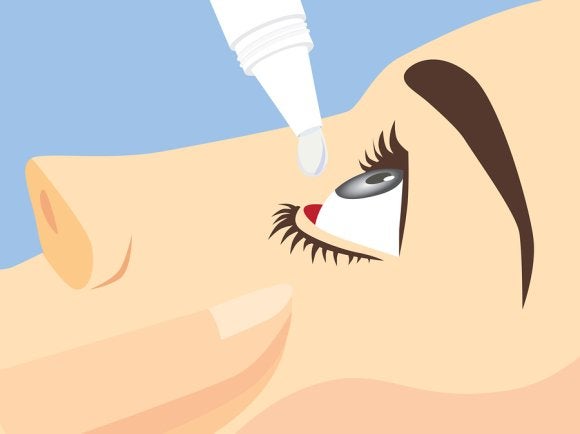
-
Recognizing Healthy Vision Month
Every May, the National Eye Institute celebrates Healthy Vision Month to remind people of all ages to stop and pay attention to their eye health. After all, while you may see your doctor for an annual physical, many people only see an eye doctor when they have an issue, which means you could be missing out on important preventative care. Take the time now to make an appointment with your eye doctor in Chicago, and focus on your eye health with these important tips.
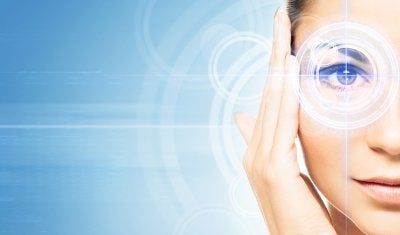
Find Out Your Family History
Did you know that many eye diseases are hereditary? Understanding your family’s eye health history will help you and your eye doctor determine which diseases could happen to you. Because many conditions that cause blindness run in families, knowing your risks can help your eye doctor make important decisions about screening tests and treatments that are right for you.
Live an Eye-Healthy Lifestyle
Many of your everyday habits can impact your eye health. Smoking can cause a number of different eye problems, including cataracts and macular degeneration, so don’t pick it up, or ask your doctor for help quitting if you are currently a smoker. Eat a healthy diet with plenty of vitamin-rich foods. If you have a chronic condition that impacts your eyes, like diabetes, follow your treatment plan closely. Wear sunglasses to avoid eye damage from UV exposure, and wear protective eyewear when necessary on the job and in sports.
Get Regular Eye Exams
Many eye conditions don’t have symptoms in their early stages, which means you could miss an important window of treatment opportunity. Your eye doctor can diagnose and treat these conditions by identifying them during an annual eye exam. Be sure to have a dilated eye exam when recommended by your doctor. Dilated exams let your eye doctor see the back of your eye to better evaluate your eye health. Eye exams are also important for verifying the effectiveness of your current vision correction treatments, like eyeglasses, and make adjustments to your prescriptions as needed.
-
What Is Astigmatism?
If your eye doctor has diagnosed you with astigmatism, you might need specialized eye care in Chicago . Astigmatism results from a distortion in the shape of your eye’s cornea, causing blurry vision that necessitates vision correction via eyeglasses or contact lenses. Your ophthalmologist might be able to reverse or slow the progression of astigmatism by fitting you with special contact lenses that slowly correct the shape of your eyes.
Watch this video to learn more about astigmatism and how it affects your vision. An experienced ophthalmologist discusses the signs and symptoms of astigmatism, and explains how an eye doctor can treat the condition. An optician or ophthalmologist at your local optical center can offer comprehensive eye care services to treat your astigmatism.
